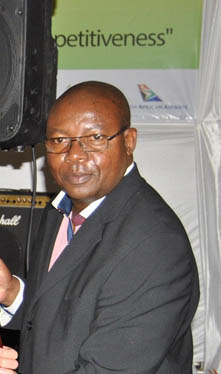
CHINESE philosopher Confucius once said that “our greatest glory is in never falling, but in rising every time we fall”.
BY NDAMU SANDU
Edwin Masimba Moyo has lived up to Confucius’ maxim “rising from the dead” after he lost the crown jewel, Kondozi Farm and the collapse of Mitchell & Mitchell, the country’s biggest supplier of vegetables to European supermarkets.
Mitchell &Mitchell had exported to the European markets since 1996.
Kondozi Farm Produce, an Export Processing Zone-registered firm, was invaded by the Agricultural and Rural Development Authority (Arda) at the behest of Zanu PF politicians in Manicaland province.
Then Moyo was labelled a front for his white partners, Piet de Klerk and Adrian Zeederberg.
Nearly a decade later, Moyo has managed to pick up the pieces and the company he leads, Lonrho Fresh Exports Zimbabwe, has secured the European market for its produce.
“It was not an easy thing. It was sweat and blood,” Moyo told Standardbusiness last week.
- Chamisa under fire over US$120K donation
- Mavhunga puts DeMbare into Chibuku quarterfinals
- Pension funds bet on Cabora Bassa oilfields
- Councils defy govt fire tender directive
Keep Reading
Moyo leads a local consortium, Ngepi Trust, which has 51% in Lonrho Fresh Exports Zimbabwe. The remainder is owned by Swiss investors through Lonrho Plc.
The company has 188 hectares of stone fruit which comes early in the season.
This, according to Moyo, is the biggest single project in the southern hemisphere.
The fruits are ready between September and November, whereas those from South Africa are only ready in December.
“Since we are the only supplier during that period, we enjoy good prices,” Moyo said.
The company sells vegetables to Tesco and Mark & Spencer, strawberries to South Africa’s Spar and Pick n Pay supermarkets. Blueberries are sold to Europe.
In addition, the company is also doing contract packing for others through Safari Fresh which supplies vegetables to Albert Heinj, the biggest supermarket chain in Holland.
Moyo said the growth of the company was credited to the injection of about US$10 million by foreign investors with a promise of more injections.
“They are feeling more and more confident. The investment climate is looking clearer and we are seeing more transparency in land issues than before,” he said.
The business, based in Marondera, has the support of the political leadership in the province. Moyo said the project in Manicaland ran into problems as it did not have the backing of the political leadership.
When Mitchell & Mitchell started, crops were grown in Marondera in summer and the weather conditions were unfavourable in winter.
The company looked for a place to grow in Manicaland and partnered with de Klerk and Kondozi was born.
Kondozi and its out-growers were contributing 40% of production. “When Kondozi was taken over, we lost 40%. We had an overdraft facility of £2 million and we had to settle that with 60% of production,” said Moyo. “We had US$2 million garnished by the Reserve Bank of Zimbabwe and never accessed its financing facilities given to companies.”
As a result, Mitchell & Mitchell was overburdened in servicing the overdraft and it collapsed.
Kondozi has left Moyo with scars that will take time to heal. “I have lots of legal issues over Kondozi. I was being sued and yet I was called a white front,” he said. “I still owe Barclays Bank and have told them that they know where the equipment is.”
Barclays, alongside other institutions, advanced financial support to Kondozi to buy machinery. The equipment was looted by senior Zanu PF politicians in Manicaland.
The collapse of Mitchell & Mitchell and the loss of Kondozi did not deter Moyo who partnered a South African investor to revive the horticulture business.
A company called Rollex (now Lonrho Fresh Produce Zimbabwe) was born and started with freighting in 2007.
A year later, the company built the first handling facility at the airport with a capacity to handle 100 tonnes.
In 2008-2009, the company got in touch with Australian breeders to start putting stone fruit in Marondera. The project was completed in 2010.
At completion, the South African investor sold his shareholding to Lonrho Plc and 100% of his South African company to the same suitor.
Moyo spoke of how the company managed to lure Tesco back into buying their produce.
“When we started putting the stone fruit, Tesco came to buy from us because we were the only supplier. We told them that we were ready to supply them but they should also open the vegetable market which they opened in 2011.”
Despite having secured the European markets, Moyo believes the prevailing liquidity conditions have hamstrung the expansion of the out-grower scheme. The company has about 500 out-growers. He said banks should offer support to out-growers.
“We have been financing them ourselves [through inputs] but they still need to pay for labour and electricity,” he said.
The company is owed US$500 000 by out-growers.
He welcomed competition in the industry but warned that competitors have to up their game to catch up.
“We grow the product, process, transport, handle and freight the product. We are vertically integrated,” he said.











